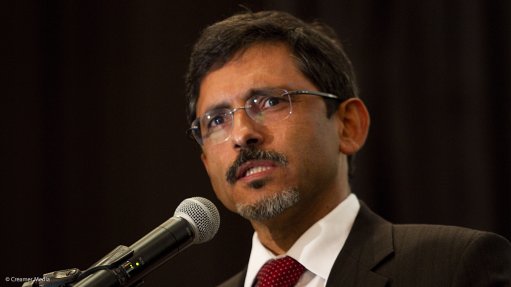
Ebrahim Patel
Photo by: Duane Daws
The DA welcomes the Competition Tribunal’s approval of the much-delayed merger to create Coca-Cola Beverages Africa.
However, both the length of time taken to approve the deal and the nature of the approval process underscore the need for clear guidelines on the Minister of Economic Development’s role as an intervening party.
In terms of the Competition Act, the Minister may intervene in large mergers on “public interest” grounds.
However, since 2009, Minister Ebrahim Patel has increasingly used his powers to stymie and stall big mergers. In the absence of a standardised public interest test, this mounting ministerial meddlesomeness has had several negative consequences.
Firstly, it has undermined the independence, integrity and effectiveness of the Competition Commission and Competition Tribunal. Secondly, it has created a climate of unpredictability for merging firms (especially multinationals) around the timing, cost and certainty of concluding mergers. Thirdly, it has served to prioritise socioeconomic policy considerations – often industrial or “developmental” – over competition.
The proposed merger of SABMiller’s soft-drink bottling operations with those of the Coca-Cola Company and Gutsche Family Investments was announced in November 2014. It was given the green light by competition authorities fairly expeditiously in all the countries where the bottlers had operations. Yet, locally the regulators dragged their feet for 18 months, despite the fact that the merged firm, Coca-Cola Beverages Africa, promised annual revenue of $2.9bn and jobs for 12,000 people.
Throughout the Competition Commission’s investigation, Minister Patel engaged in protracted parallel negotiations behind closed doors with the merging parties, ostensibly to iron out public interest issues. He was involved in the minutiae of the deal.
However, effective regulation thrives on clear and predictable institutional rules and administrative processes, not backroom deals between individuals.
We need a clearer definition of the Minister’s powers of intervention; more specific and less discretionary guidelines for the assessment of public interest provisions in mergers; and a reinforcement of the competition authorities’ independence.
The DA will insist that such measures form part of the proposals for wider public consultation that Minister Patel announced in his recent budget speech.
Issued by DA